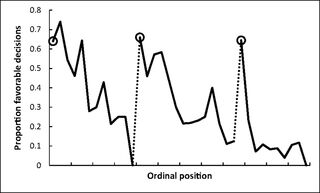Coronavirus Disease 2019
Navigating Decision Fatigue From COVID-19
Five tips for parents on traversing the onslaught of decisions in 2020.
Posted September 23, 2020

Who had fire tornadoes on their 2020 Bingo card? From a global pandemic, unprecedented protesting, murder hornets, widespread fires, windstorms, hurricanes, earthquakes, and economic hardships, change appears to be the only constant this year.
As schools attempt to reopen, circumstances are shifting daily. Parents are being bombarded with decisions on how to educate their children, take care of their family’s physical and emotional wellbeing, and weigh various risk factors. Homeschool? Online learning? Hybrid? Each decision leads to several other factors to consider and often parents must revisit the choices they made previously. There are no easy answers.
Making decisions in rapid succession can decrease the quality of one’s choices. This decision fatigue was coined by social psychologist Roy Baumeister while exploring whether there is a finite store of mental energy for exerting self-control.
In one study, participants in the experimental group were asked to make a series of mundane choices. Did they prefer this color shirt or that? Did they like scent A or B? The control group spent an equivalent amount of time contemplating the same products but were simply asked to give their opinion on each one and state how often they had used the product.
Afterward, both groups were asked to hold their hand in ice water for as long as they could. Would being confronted with several unimportant choices affect how long the decision-makers could control their impulse to retreat from the frigid water? Indeed, it did. Those in the control group lasted roughly twice as long.
Sadly, parents aren’t just faced with selecting which color of t-shirt they prefer. Many of these choices relating to the risks of COVID-19 and education will have short and potentially long-term impacts.
The effects of decision fatigue, where choices had life-altering consequences, was the focus of one research team. They studied judicial rulings for those requesting parole. It was assumed that “judges apply legal reasons to the facts of a case in a rational, mechanical, and deliberative manner (p. 6889).” However, the evidence showed otherwise.
The graph below illustrates the proportion of rulings in favor of the prisoners in sequential order. Circled points signify the first decision in each of the sessions and the dotted lines indicate a food break. The probability of a favorable ruling was greatest at the beginning of the workday or after a food break compared to later in the series of cases.

Humans are not always rational agents that meticulously weigh each pro and con when making critical choices. Our decisions can be swayed by several extraneous factors.
These five tips can help parents eliminate barriers to effective decision making:
1. Regulate yourself. Have you noticed how vital healthy snacks and adequate sleep are for young children to make good choices? Parents are no exception. Just as simple breaks affected the judges’ decisions, remembering the basics can go a long way. Strive to get adequate sleep, nutrient-dense meals, regular exercise, and frequent breaks. Prioritizing self-care will help you manage stress and give you greater access to higher-order thinking skills essential for rational decision making. Research shows that stress can cause you to fall back on old habits instead of focusing on your long- and short-term goals.
2. Limit the number of choices that need to be made. Being bombarded with decisions can make even the most inconsequential ones feel like a burden. After assessing different choices to be made with your partner, child, community members, etc., delegate who will make the final call. Find ways to eliminate trivial judgments. For example, Steve Jobs wore the same style of outfit every day to save mental resources for higher priorities. Evaluate what decisions can be done beforehand, such as weekly meal planning, to conserve mental energy for where it counts.
3. Sleep on it. You’ve likely had the experience of failing to solve a problem, then figuring it out immediately when reattempting the next morning. One study found that the number of participants who gained insight into a problem tripled after a night’s sleep. Complex information often has a way of coming together once it has been tabled for a time. Big decisions should never be decided in haste. When possible, weigh the pros and cons of a choice, then step away from it for a day or two before acting.
4. Be a satisficer, not a maximizer. Do you search endlessly for the best show available on your streaming service or do you settle on one that is simply good enough? Satisficers accept the first best option, whereas maximizers look for the absolute best in the pool of choices. Maximizing can be laborious, change your original criteria, and lead to self-blame when the results are imperfect. At times it will be impossible to select the best option for your child when the choices are endless. Focus on finding an option that matches the criteria you’re looking for, commit, and move on.

5. Practice self-compassion. The fear of making the wrong choice can be debilitating. We’ve all been inundated with decisions we have never had to face before. Give yourself some grace. If there was ever a year to make mistakes, this is it. Be flexible and forgiving. Ruminating and berating yourself for past missteps won’t make future decisions any easier. Meet any blunders in your partner’s decisions with similar kindness.
There are no clear-cut answers for parents as they navigate what is best for their children’s education. As Maya Angelou said, “Do the best you can until you know better. Then when you know better, do better.”
References
Figure, used with permission, from Danziger, S., Levav, J., & Avnaim-Pessoa, L. (2011). Extraneous factors in judicial decisions. PNAS Proceedings of the National Academy of Sciences of the United States of America, 108(17), 6889–6892. https://doi-org.erl.lib.byu.edu/10.1073/pnas.1018033108




